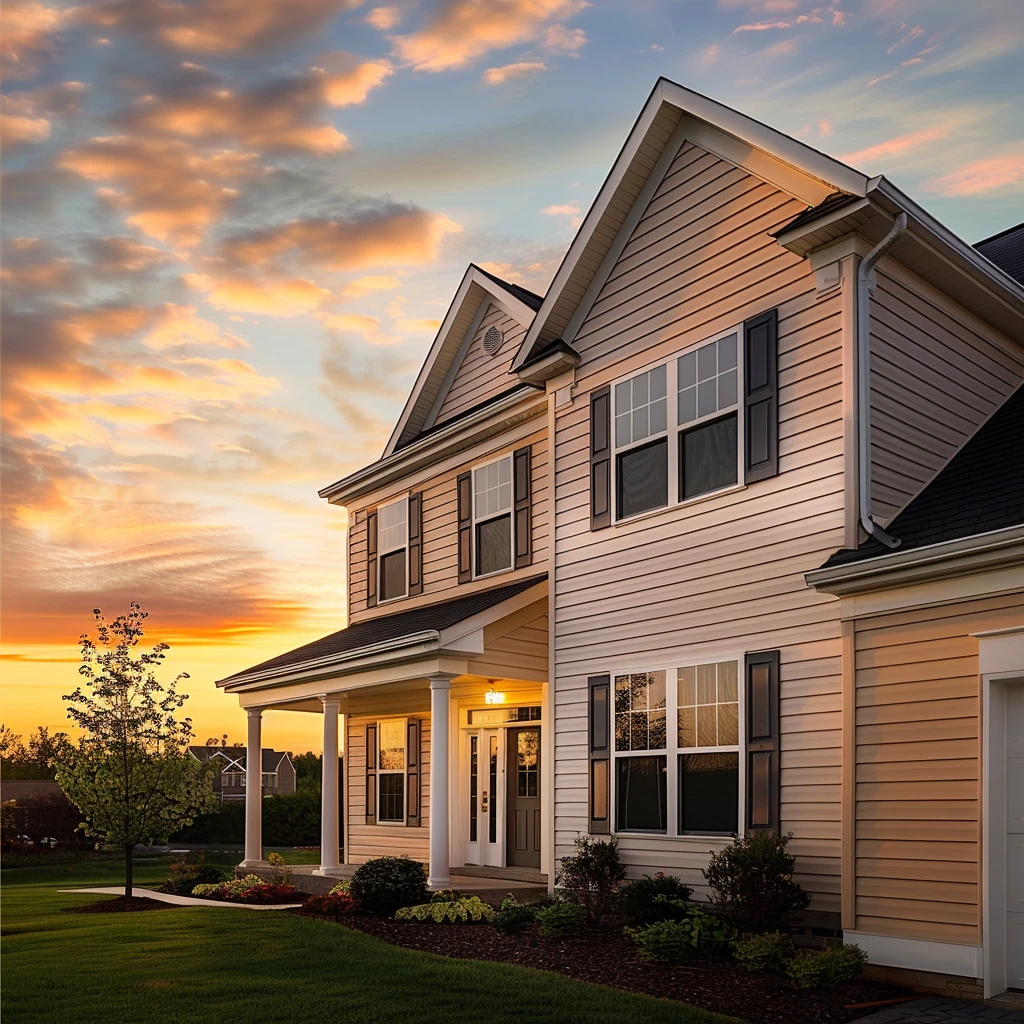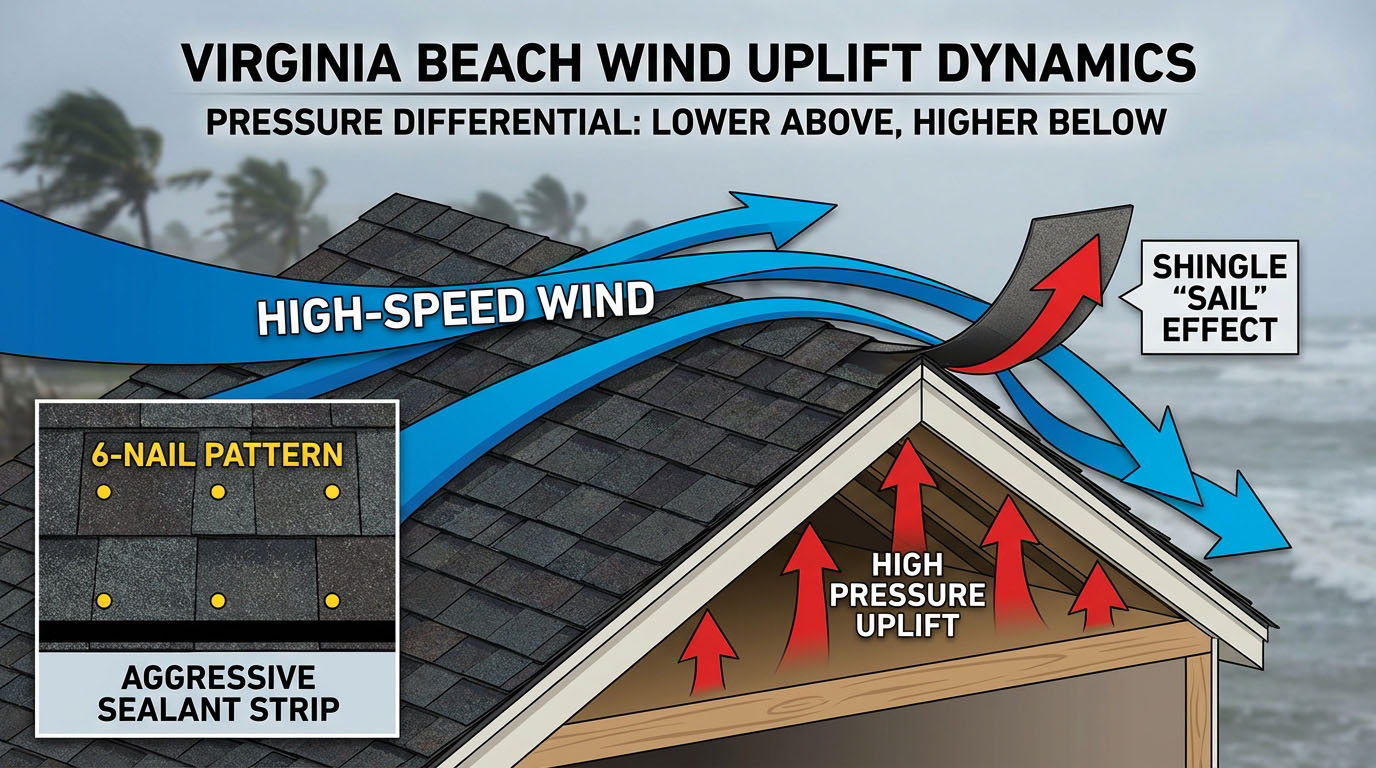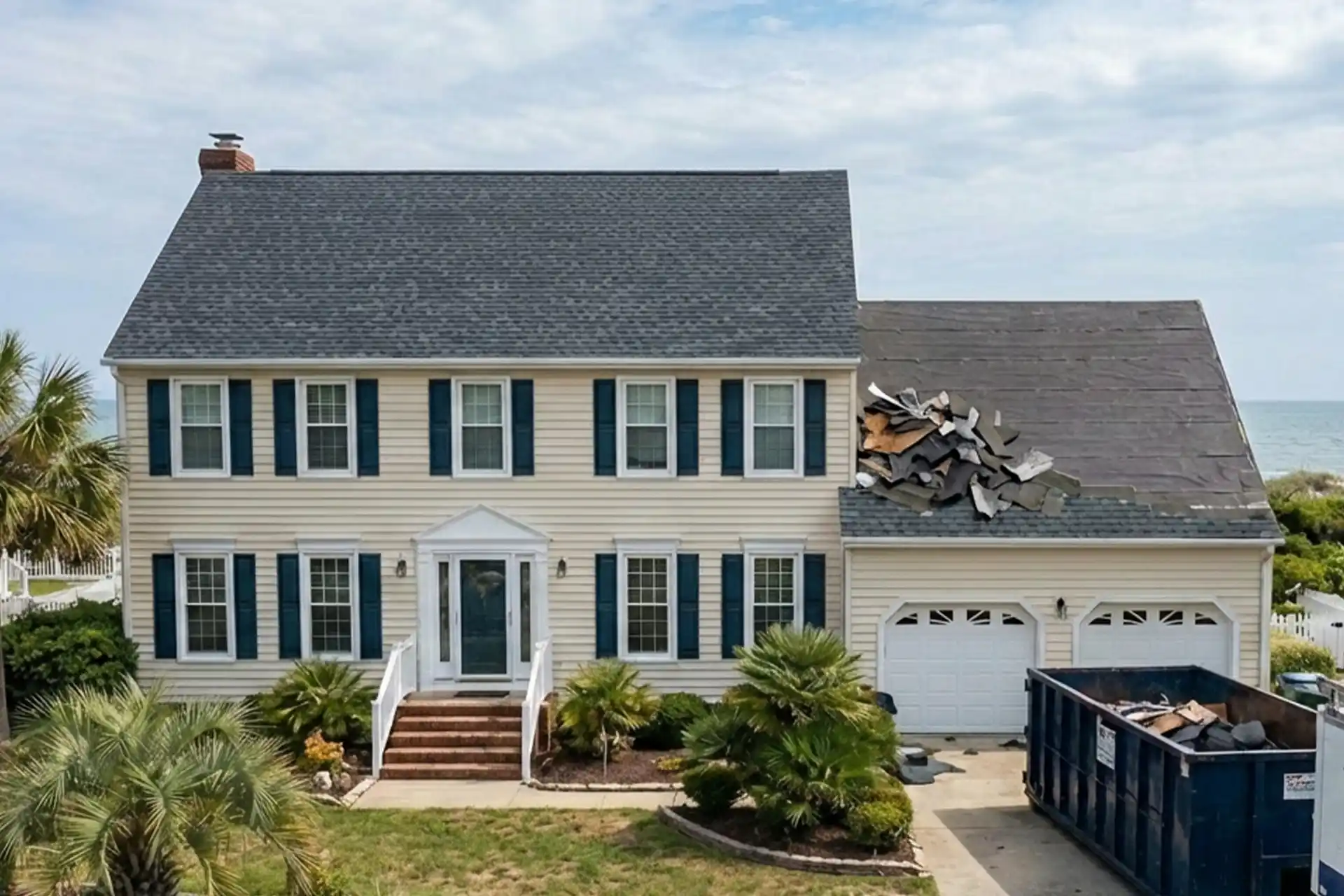Is it better to repair or replace siding?
Use our quick contact form to get in touch with our team. We will respond shortly.

Your home's siding does more than boost curb appeal—it’s your first line of defense against Virginia’s coastal winds, salt air, heavy rains, and scorching summer sun. So when siding gets damaged, warped, or faded, the big question becomes: should you repair it—or replace your siding entirely?
The answer depends on a few key factors like the age of your siding, the extent of the damage, and your long-term goals for the home. Let’s break it down.
When Siding Repair Makes Sense
If the damage is localized or minimal, repairing your siding is often a fast and cost-effective solution. In the Hampton Roads region, many homeowners opt for repairs when:
- Only a few panels are cracked or loose
- There’s minor storm or impact damage
- You’re prepping to sell and need a quick refresh
- The siding is relatively new (under 10-15 years old)
Repairs may include patching small holes, replacing individual panels, or re-fastening loose siding. This option can save money in the short term and preserve the look of your home—especially if a color match is available.
✅ Pro tip: Homes in neighborhoods like Kempsville, Ghent, or Hilltop often have vinyl siding in standard colors, making matching easier.

Signs It’s Time to Replace Your Siding
While repairs work for isolated issues, full replacement is often the better choice when:
- There’s widespread damage or rotting
- You notice mold, mildew, or pest infestations behind the siding
- Your energy bills are climbing due to poor insulation
- Your siding is faded, warped, or brittle from age (15–25+ years)
In Virginia Beach and surrounding cities like Chesapeake and Portsmouth, older homes built in the '90s and early 2000s are hitting that window of time where siding replacement becomes more cost-effective and energy-efficient in the long run.
👉 Bonus: New siding adds value to your home and can boost curb appeal—important in a competitive coastal real estate market.
*From Remodeling Magazine - Cost vs. Value Report – South Atlantic Region
Keep in mind: trying to patch over recurring issues may cost more over time than investing in new siding now. Plus, replacing older siding with modern, insulated options can lead to energy savings year-round.
Benefits of Full Siding Replacement
- Improved energy efficiency
- Better weather protection (especially in storm-prone areas)
- A fresh, modern look
- Higher resale value
At WT Anderson, we often recommend replacement when it will save you money over the next 10–20 years—and our team always walks you through the pros and cons before you make a decision.
Local Insight: What Hampton Roads Homes Need
Our region’s unique coastal climate demands siding that can handle:
- High humidity and salt air (which accelerates aging in cheaper materials)
- Frequent thunderstorms and hurricane threats
- Temperature swings from summer to winter
Whether you’re in a newer home in Red Mill or an older property in Colonial Place, siding decisions shouldn’t be one-size-fits-all.
Final Thoughts
So, is it better to repair or replace siding? If the damage is minor and your siding is in good condition overall, repair is likely the way to go. But if your siding is showing its age, failing in multiple places, or hurting your home’s value, replacement is often the smarter long-term investment.
Not sure what’s best for your home? Call WT Anderson for a free siding inspection and expert advice you can trust. We’ve helped thousands of homeowners across Virginia Beach, Norfolk, and beyond make the right call—and we’re here to help you, too.
Sources:





